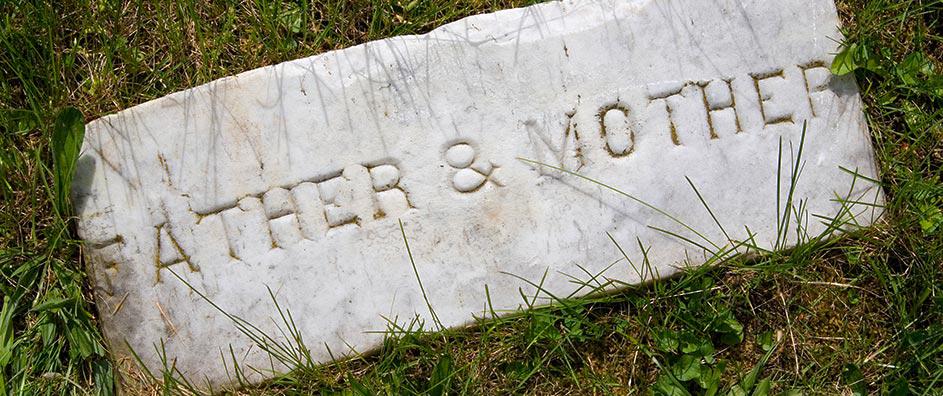The profound journey of grappling with the loss of loved ones invariably shapes one’s worldview, particularly within the framework of Baha’i teachings. The experience of “The Passing of My Parents and Their Possessions” serves as a poignant reminder of the cyclical nature of life and the spiritual imperatives that guide adherents of the Baha’i Faith as they navigate loss. In this reflective discourse, we shall explore multifaceted dimensions of bereavement, elucidating the principles that inform the Baha’i perspective on life, death, and the relationships we foster with both our kith and kin, as well as our material belongings.
The Concept of Life and Death in Baha’i Thought
Within Baha’i beliefs, the physical realm is merely a transient stage in the eternal pilgrimage of the soul. Death is not an end but a transformation—a passage to a higher realm of existence. This perspective engenders a profound sense of acceptance and understanding, allowing individuals to reframe their mourning as an opportunity for spiritual awakening. Baha’is are encouraged to perceive death as a universal experience that invites reflection rather than despair.
One pivotal tenet is the understanding that the essence of our loved ones—who they truly are—does not dissipate with the cessation of physical presence. Recognizing the immortality of the soul invites a shift in perspective, directing grief toward remembrance and appreciation instead of desolation. Thus, one is encouraged to cherish the teachings, values, and legacies left behind by those who have passed, fostering a sense of continuity across generations.
Experiencing Grief: A Journey of the Soul
Grief can be as personal as the relationships one holds, reflecting a complex interplay of emotions ranging from sadness to anger, and even moments of joy upon reminiscing. In adherence to Baha’i principles, undergoing the catharsis of grief is not merely an individual endeavor; it is a communal fabric that binds families and communities alike. The act of mourning cultivates solidarity, bringing together individuals in expressions of support and collective remembrance.
Moreover, the Baha’i perspective encourages the transformation of grief into meaningful action. This could manifest as the establishment of charitable initiatives, the perpetuation of family traditions, or engaging in community service—a dedication to embodying the virtues that the deceased espoused during their lifetime. In this manner, one not only honors their memory but also contributes positively to the wider community, fostering a sense of shared humanity.
The Role of Material Possessions
As we confront the passing of loved ones, the possessions they leave behind serve as both symbols of their existence and reminders of our shared experiences. Baha’i teachings compel adherents to contemplate the ephemeral nature of material belongings. The attachment to possessions can often cloud one’s perception of what is truly significant. Hence, a nuanced appreciation emerges, focusing on utility and sentiment rather than sheer accumulation.
In the Baha’i worldview, possessions are to be viewed as tools for service and means of supporting the community rather than tokens of status or personal entitlement. As belongings transition from one generation to another, Baha’is are encouraged to engage with these items intentionally, reflecting upon the memories they represent while releasing the burdens of excessive attachment. This practice aligns with the spiritual principle of detachment—valuing experiences and relationships over material accumulations, thereby fostering a harmonious balance in life.
Community Support and the Importance of Remembrance
In the aftermath of loss, the Baha’i community plays a crucial role in providing support. Collective mourning practices—such as prayer gatherings and memorial services—afford individuals a sacred space to share their stories and reflect. These communal rituals embody the Baha’i principle of unity, reinforcing bonds among the bereaved and the community at large. Through the act of remembrance, families are reminded that they are not alone in their sorrow; instead, they are embraced by a network of empathy and understanding.
Furthermore, remembrance ceremonies serve a dual purpose: they honor the deceased’s life while nurturing the collective spirit of the community. This creates an opportunity for reflections on the virtues of the departed, allowing their legacies to inspire others. Recognizing the interconnectedness of all souls fosters a sense of responsibility to carry forward the values and principles that characterize a life well-lived.
Reframing Loss: Embracing the Cycle of Life
The interplay of loss and understanding unveils insights about resilience, growth, and transformation. Through adhering to the Baha’i teachings, one can glean profound wisdom from the hardships of grieving and learn to embrace life anew. Each experience of loss presents an opportunity for personal elevation; it challenges one to reassess priorities and relationships, enabling the emergence of deeper connections with both the spiritual and material aspects of life.
In this context, the acceptance of loss ultimately fosters a paradigm shift—an understanding of existence that transcends despair and engenders hope. The recognition that the journey of the soul continues beyond the physical realm not only softens the edges of heartache but also cultivates an intrinsic appreciation for the time spent with those we cherish.
Conclusion: A Saga of Renewal and Spiritual Growth
In summation, “The Passing of My Parents and Their Possessions” serves as a multivalent didactic narrative interwoven with principles that underscore the Baha’i outlook on life and death. By embracing the teachings surrounding grief, material possessions, and communal support, one can navigate the complexities of loss while nurturing spiritual growth. Each passing invites reflection, urging adherents to delve deeper into the sanctity of existence and reaffirm their commitments to love, unity, and service. This journey, though fraught with sorrow, ultimately leads to profound renewal—a testament to the resilience of the human spirit in times of upheaval.
